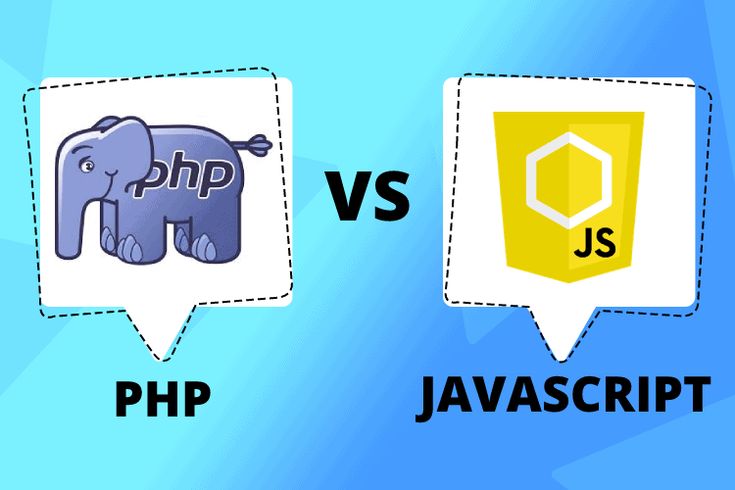Digital Transformation in Small Hospitals Digital Transformation in Small Hospitals Digital transformation is no longer […]

Is JavaScript or PHP Better for Developing Websites?
When building a website, understanding the key differences between JavaScript and PHP is essential. Both languages play a crucial role in web development in Chennai, but choosing the right one depends on your project requirements. Consulting a leading web development company in Chennai can help you decide whether PHP development or JavaScript development is the best fit for your needs.
PHP and JavaScript are among the most popular programming languages for creating dynamic websites and web applications. But how do you determine which one is ideal for your project? In this post, we will compare PHP vs JavaScript, highlighting their strengths to help you make an informed choice.
At SparkITX, we specialize in PHP development services and full-stack web development in Chennai, leveraging both PHP and JavaScript to build high-performance, scalable web solutions. Let’s dive deeper into their applications and advantages in modern web development.
What is php?
PHP (Hypertext Preprocessor) is a widely used open-source scripting language specifically designed for web development. As a server-side programming language, PHP is embedded within HTML and executed on the server, making it an excellent choice for building dynamic and interactive websites. Its seamless integration with databases like MySQL, PostgreSQL, and MariaDB makes it a preferred option for CMS development, eCommerce websites, and custom web applications.
Key Features of PHP
✅ Server-Side Execution – PHP scripts run on the server, generating dynamic content before sending the result to the user’s browser. This enhances security and performance in web development.
✅ Cross-Platform Compatibility – PHP works seamlessly across multiple operating systems, including Windows, macOS, and Linux, making it a flexible choice for web application development.
✅ Database Integration – PHP supports MySQL, PostgreSQL, SQLite, and other databases, making it ideal for database-driven websites, eCommerce platforms, and content management systems (CMS).
✅ Flexibility – Whether you’re building a small business website or a large-scale web application, PHP offers the scalability and adaptability needed for various web development projects.
✅ Open-Source and Community Support – PHP is free to use and backed by a vast developer community, ensuring continuous updates, extensive documentation, and access to countless PHP development resources.
PHP powers millions of websites and web applications, including popular CMS platforms like WordPress, making it a cornerstone of modern web development in Chennai and beyond.
Pros of PHP
✅ Open-Source and Cost-Effective – PHP is free to use, making it a budget-friendly choice for web development projects while reducing overall development costs.
✅ Cross-Platform Compatibility – Works seamlessly on major operating systems like Windows, Linux, and macOS and supports popular web servers such as Apache and Nginx, ensuring smooth deployment.
✅ Beginner-Friendly and Easy to Learn – PHP has a simple and intuitive syntax, making it one of the easiest server-side scripting languages for developers to learn and implement.
✅ Seamless Database Integration – PHP supports MySQL, PostgreSQL, SQLite, and other databases, making it an excellent choice for database-driven websites, CMS platforms, and eCommerce solutions.
✅ Scalability for Any Project Size – Whether it’s a small business website, a dynamic blog, or a large enterprise web application, PHP provides the scalability needed for growing businesses.
✅ Strong Community Support – With a vast developer community, PHP offers access to libraries, frameworks (Laravel, CodeIgniter, Symfony), and troubleshooting resources, simplifying web application development.
✅ High Flexibility and Integration – PHP easily integrates with HTML, CSS, JavaScript, and other web technologies, making it a versatile choice for full-stack web development.
PHP remains a powerful and widely-used language for web development, supporting everything from custom web applications to content management systems like WordPress.
Cons of PHP
❌ Security Vulnerabilities – If not coded securely, PHP applications can be vulnerable to SQL injection, cross-site scripting (XSS), and other cyber threats. Following best security practices is essential to mitigate risks.
❌ Loosely Typed Language – PHP’s flexibility with data types can sometimes cause unexpected behaviors or logical errors, making debugging more challenging in large-scale web development projects.
❌ Performance Limitations – Compared to modern backend technologies like Node.js, Python, or Golang, PHP may have performance bottlenecks, especially for highly scalable real-time applications.
❌ Inconsistencies in Older Versions – Older PHP versions had inconsistencies and deprecated functions, but newer releases like PHP 8+ have significantly improved performance, security, and syntax structure.
❌ Not Ideal for High-Performance Web Applications – While PHP is great for CMS development, eCommerce websites, and dynamic web pages, newer technologies like Node.js and Django may be better suited for real-time applications, AI-driven platforms, or microservices architecture.
Despite these drawbacks, PHP remains a leading web development language with extensive framework support, active community contributions, and continual improvements in its latest versions.
What is JavaScript
JavaScript is a versatile, high-level programming language widely used for creating dynamic, interactive, and engaging web experiences. As a core technology of web development, it allows developers to enhance websites beyond static HTML and CSS, enabling real-time interactions, animations, and user-driven functionality.
From front-end development with frameworks like React.js and Vue.js to back-end development using Node.js, JavaScript powers modern web applications, progressive web apps (PWAs), and single-page applications (SPAs).
Its ability to run on both the client-side and server-side makes JavaScript a fundamental language for full-stack web development.
Key Features of JavaScript
- Client-Side Execution: JavaScript code is executed in the browser, allowing instant responses to user actions.
- Dynamic Content: Enables interactive elements like sliders, forms, animations, and real-time updates without reloading the page.
- Cross-Platform Support: Works on all modern web browsers, ensuring compatibility across devices.
- Versatility: Can be used for front-end development (using frameworks like React or Angular) and back-end development (via Node.js).
- Event Handling: Responds to user inputs, such as clicks, mouse movements, and keyboard actions.
- Rich Ecosystem: Offers a vast collection of libraries and frameworks to simplify complex tasks.
Conclusion:
Both PHP and JavaScript are essential for web development in Chennai, each offering unique advantages depending on your project requirements.
If you need a robust server-side scripting language for database-driven websites, content management systems (CMS), and secure web applications, PHP is the ideal choice.
For dynamic, real-time user interactions, single-page applications (SPAs), and seamless front-end experiences, JavaScript is the preferred option.
In many cases, leveraging both PHP and JavaScript together can result in a highly functional, interactive, and performance-optimized website.
At Sparkitx, we provide expert PHP development services and full-stack web development solutions in Chennai, helping businesses build scalable, secure, and high-performance websites that enhance user engagement and business growth.
Explore our web development training and courses in Chennai to upskill and stay ahead in the evolving tech landscape.
Related Posts
Strategies for Building a Successful and Profitable E-Commerce Store
- SparkITX
- April 30, 2025
- 4 min read
- 0
Strategies for Building a Successful and Profitable E-Commerce Store Introduction Launching a successful e-commerce business […]
Why ERP is Essential for Industries
- SparkITX
- January 17, 2025
- 9 min read
- 0
Why ERP is Essential for Industries In today’s fast-evolving business landscape, industries face intense competition, […]
A Comprehensive Guide
- SparkITX
- January 9, 2025
- 6 min read
- 0
The Complete Guide: How Can Small Businesses Create an Effective and Best WordPress Website in […]




